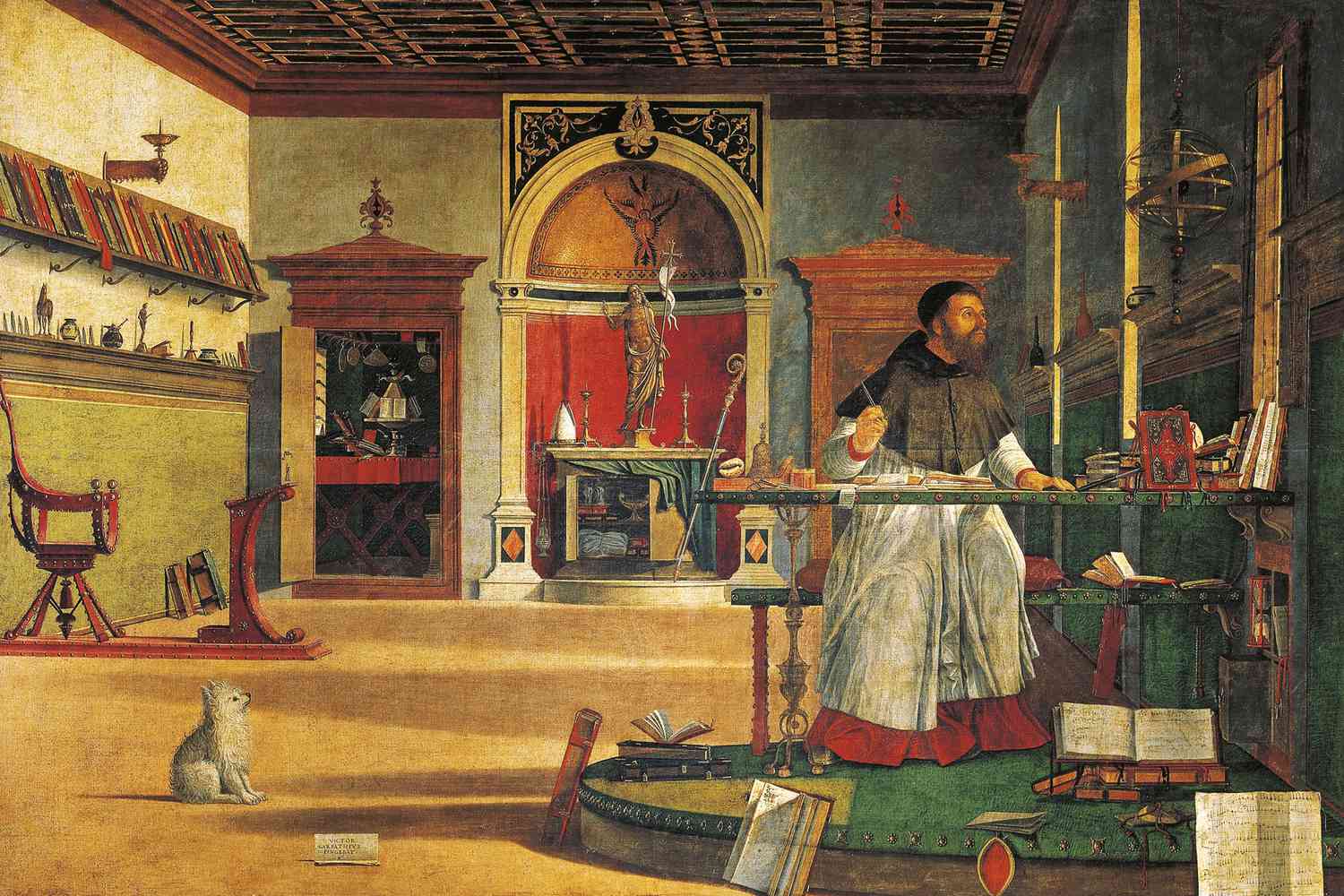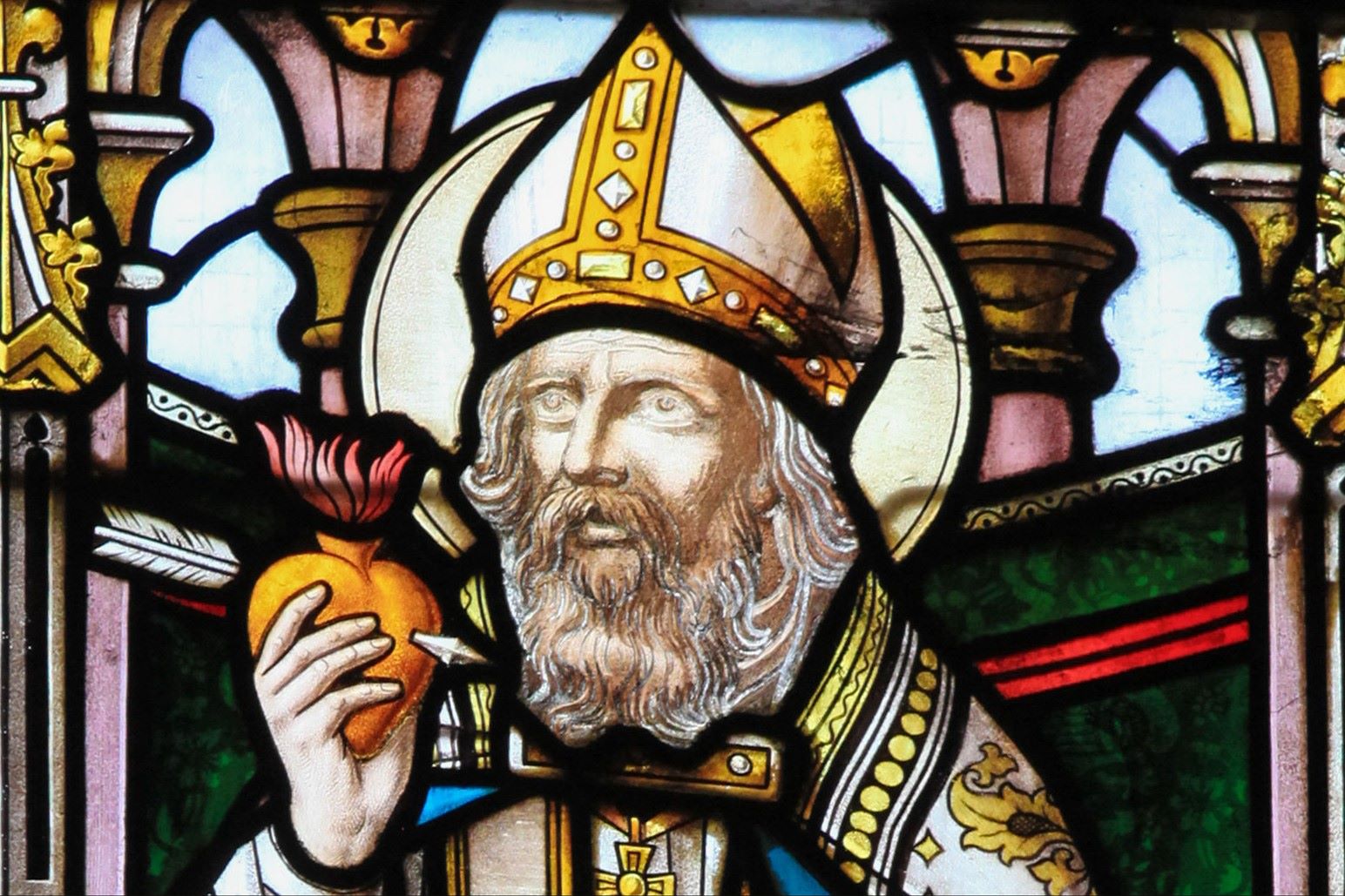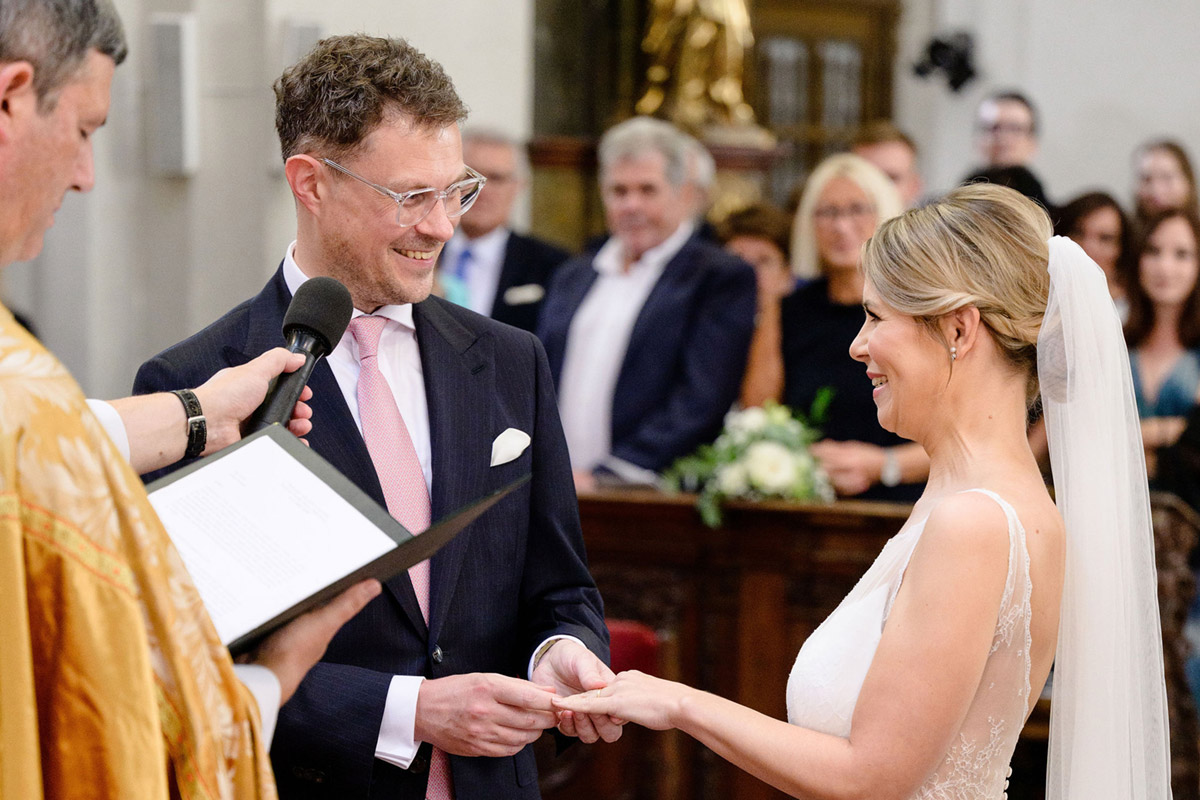Home>Theology and Spirituality>What Does Augustine Think About Reason


Theology and Spirituality
What Does Augustine Think About Reason
Published: February 10, 2024
Ericka Andersen, an editor at Christian.net, expertly merges digital strategy with content creation, focusing on faith and societal issues. Her communication skills enhance the platform's engaging narratives, fostering meaningful dialogue on belief's impact on society.
Discover Augustine's perspective on reason and its role in theology and spirituality. Explore his insights and teachings on the relationship between faith and reason.
(Many of the links in this article redirect to a specific reviewed product. Your purchase of these products through affiliate links helps to generate commission for Christian.net, at no extra cost. Learn more)
Table of Contents
Introduction
Augustine of Hippo, a towering figure in the history of Christian theology, grappled with profound questions about the nature of reason and its relationship to faith. His influential writings continue to shape the discourse on philosophy, theology, and spirituality. Augustine's exploration of reason offers valuable insights into the human intellect and its capacity to comprehend the divine.
In this article, we delve into Augustine's thoughts on reason, shedding light on his perspectives and the implications they hold for contemporary discussions. By examining Augustine's nuanced views, we can gain a deeper understanding of the interplay between reason and faith, and how these concepts intersect in the pursuit of truth and spiritual fulfillment. Let's embark on a journey through Augustine's profound reflections, unraveling the significance of reason in his philosophical framework and its enduring relevance in the realm of theology and spirituality.
Augustine's Views on Reason
Augustine's views on reason are deeply rooted in his exploration of the human condition and the quest for understanding the nature of truth. Central to his philosophy is the recognition of the human intellect as a divine gift, endowed with the capacity for rational inquiry. Augustine acknowledges the inherent power of reason, emphasizing its role in discerning the order and beauty of the created world. He contends that reason, when guided by humility and virtue, can lead individuals to contemplate the transcendent truths that underpin existence.
At the core of Augustine's perspective is the acknowledgment of reason as a valuable tool for intellectual exploration and discernment. He recognizes the potential of reason to illuminate the pathways to knowledge and understanding, enabling individuals to engage in profound reflection on the mysteries of existence. Augustine's reverence for reason is evident in his writings, where he extols the virtues of intellectual inquiry and the pursuit of wisdom through rational contemplation.
However, Augustine also grapples with the limitations of reason, recognizing its inherent constraints in comprehending the ineffable mysteries of faith and the divine. He cautions against the hubris of relying solely on human reason to grasp the transcendent, emphasizing the need for humility in the face of the unknowable. Augustine's nuanced approach to reason reflects a profound awareness of its strengths and limitations, underscoring the complex interplay between human intellect and the mysteries of faith.
In his seminal work "Confessions," Augustine chronicles his intellectual journey, grappling with the tensions between reason and faith. His introspective exploration delves into the profound struggles of reconciling the rational faculties of the mind with the ineffable truths of the divine. Augustine's candid reflections offer a poignant portrayal of the human quest for meaning, navigating the intricate terrain of reason and faith in the pursuit of spiritual enlightenment.
Augustine's views on reason resonate with enduring relevance, inviting contemporary contemplation on the interplay between rational inquiry and spiritual insight. His profound insights continue to inspire philosophical and theological discourse, offering a compelling framework for engaging with the complexities of reason and faith in the human experience. Augustine's legacy endures as a testament to the enduring quest for truth, where reason and faith converge in the pursuit of profound understanding and spiritual fulfillment.
The Role of Reason in Augustine's Philosophy
In Augustine's philosophy, reason occupies a central position, serving as a conduit for intellectual inquiry and the pursuit of truth. He regards reason as a divine gift, bestowed upon humanity to discern the order and beauty inherent in the created world. Augustine's profound reverence for reason is rooted in its capacity to illuminate the pathways to knowledge and understanding, enabling individuals to engage in profound reflection on the mysteries of existence.
At the heart of Augustine's philosophical framework lies the recognition of reason as a powerful instrument for discerning truth and contemplating the transcendent. He emphasizes the inherent potential of reason to guide individuals towards a deeper comprehension of the world and the divine. Augustine's exhortation to cultivate the virtues of humility and intellectual curiosity underscores his belief in the transformative power of reason when wielded with moral integrity.
Moreover, Augustine grapples with the inherent limitations of reason, acknowledging its constraints in comprehending the ineffable mysteries of faith and the divine. He cautions against the arrogance of relying solely on human reason to grasp the transcendent, emphasizing the need for humility in the face of the unknowable. Augustine's nuanced approach to reason reflects a profound awareness of its strengths and limitations, underscoring the complex interplay between human intellect and the mysteries of faith.
Throughout his writings, Augustine invites contemplation on the role of reason in shaping human understanding and spiritual insight. His philosophical reflections resonate with enduring relevance, offering a compelling framework for navigating the complexities of reason and faith in the human experience. Augustine's philosophy underscores the symbiotic relationship between reason and faith, advocating for a harmonious integration of intellectual inquiry and spiritual contemplation in the pursuit of truth and enlightenment.
In essence, the role of reason in Augustine's philosophy transcends mere intellectual inquiry; it embodies a profound quest for truth and spiritual fulfillment. His profound insights continue to inspire philosophical and theological discourse, inviting individuals to engage with the profound implications of reason in the pursuit of wisdom and spiritual enlightenment. Augustine's enduring legacy serves as a testament to the enduring quest for truth, where reason and faith converge in the pursuit of profound understanding and spiritual fulfillment.
Reason and Faith in Augustine's Thought
In Augustine's thought, the dynamic interplay between reason and faith occupies a central and complex role, reflecting the intricate relationship between human intellect and spiritual insight. Augustine grapples with the profound tensions and harmonies between these two faculties, recognizing their distinct yet interconnected roles in the pursuit of truth and spiritual fulfillment.
At the heart of Augustine's exploration lies the recognition of reason as a potent instrument for intellectual inquiry and the discernment of truth. He extols the virtues of rational contemplation, acknowledging the capacity of reason to unveil the inherent order and beauty of the created world. Augustine's reverence for reason is deeply intertwined with his belief in the transformative power of intellectual inquiry, emphasizing the potential of reason to guide individuals towards a deeper comprehension of the world and the divine.
Simultaneously, Augustine confronts the inherent limitations of reason in grasping the ineffable mysteries of faith and the divine. He cautions against the presumption of relying solely on human reason to apprehend the transcendent, emphasizing the need for humility in the face of the unknowable. Augustine's nuanced approach to reason reflects a profound awareness of its strengths and limitations, underscoring the intricate interplay between human intellect and the mysteries of faith.
In parallel, Augustine's contemplation of faith as a transcendent and ineffable reality underscores its distinct yet complementary relationship with reason. He elucidates the profound significance of faith as a spiritual faculty that transcends the boundaries of human intellect, enabling individuals to apprehend truths that surpass rational comprehension. Augustine's exploration of faith resonates with a profound acknowledgment of its capacity to illuminate the spiritual landscape, offering insights that transcend the limitations of reason.
The convergence of reason and faith in Augustine's thought reflects a harmonious integration of intellectual inquiry and spiritual contemplation in the pursuit of truth and enlightenment. He advocates for a symbiotic relationship between these faculties, emphasizing the transformative potential of their interplay in shaping human understanding and spiritual insight. Augustine's profound insights continue to inspire philosophical and theological discourse, inviting individuals to engage with the profound implications of reason and faith in the pursuit of wisdom and spiritual enlightenment.
In essence, Augustine's contemplation of reason and faith offers a compelling framework for navigating the complexities of the human experience, underscoring the profound interplay between intellectual inquiry and spiritual insight in the enduring quest for truth and spiritual fulfillment.
Conclusion
Augustine's profound reflections on reason offer a compelling framework for understanding the intricate interplay between intellectual inquiry and spiritual insight. His recognition of reason as a divine gift, endowed with the capacity for rational exploration, underscores the transformative potential of human intellect in discerning the truths that underpin existence. Augustine's reverence for reason, coupled with his acknowledgment of its inherent limitations, reflects a nuanced awareness of the complexities inherent in the pursuit of truth and spiritual fulfillment.
In navigating the tensions and harmonies between reason and faith, Augustine invites contemplation on the symbiotic relationship between these faculties. He emphasizes the transformative power of reason when guided by humility and virtue, illuminating the pathways to knowledge and understanding. Simultaneously, Augustine grapples with the ineffable mysteries of faith, recognizing its capacity to transcend the boundaries of human intellect and offer spiritual insights that surpass rational comprehension.
The enduring relevance of Augustine's insights resonates with contemporary discourse, inviting individuals to engage with the profound implications of reason and faith in the pursuit of wisdom and spiritual enlightenment. His philosophy serves as a testament to the enduring quest for truth, where reason and faith converge in the pursuit of profound understanding and spiritual fulfillment.
In conclusion, Augustine's contemplation of reason and faith offers a profound invitation to explore the complexities of the human experience, navigating the interplay between intellectual inquiry and spiritual insight. His enduring legacy continues to inspire philosophical and theological discourse, underscoring the enduring quest for truth and spiritual fulfillment, where reason and faith converge in the pursuit of profound understanding.















